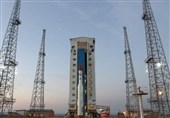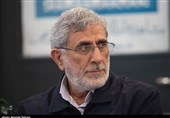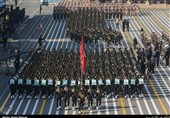Flow of Humanitarian Aid to Yemen Threatened by Severe Funding Shortages: UN
TEHRAN (Tasnim) – Severe funding shortages pose a threat to the flow of humanitarian assistance to Yemen, the United Nations warned, adding that food rations have already been cut by half for eight million people in the impoverished country.
"Aid agencies are doing everything they can to respond to people’s needs, but acute funding shortages are threatening the flow of humanitarian assistance," UN spokesman Stephane Dujarric told a news briefing.
"Food rations have already been cut by half for eight million people. Those people may soon stop receiving food assistance from the UN altogether," he said.
He noted that at the start of this year, lack of cash had already forced two-thirds of major UN aid programs to reduce or close, adding, "Further cuts are on the horizon if funding is not received."
He reiterated his concern over the "grave situation" in Yemen, including the impact of the ongoing Saudi-led aggression, which is causing civilian casualties on a daily basis.
The UN spokesperson noted that over 23,000 Yemeni civilians have been displaced since the beginning of this year, most of them in Hudaydah, Ma’rib, Shabwah and Ta'iz provinces.
"They join more than four million men, women and children who have been displaced across Yemen since the latest escalation got underway in 2015," he said.
Dujarric called on donors to make generous aid pledges at a high-level during a planned donor conference for Yemen, which is scheduled to be held on March 16, co-hosted by the UN, Sweden and Switzerland.
"We also urge donors to commit funds before the pledging conference to avoid major disruptions in our humanitarian operations," the UN spokesman said.
Saudi Arabia and a number of its regional allies, backed by the United States and European powers, launched the war on Yemen in March 2015, with the goal of bringing the government of former Yemeni president Abd Rabbuh Mansour Hadi back to power and crushing Ansarullah resistance movement.
The war has left hundreds of thousands of Yemenis dead and displaced millions more. It has also destroyed Yemen’s infrastructure and spread famine and infectious diseases there.
Despite Saudi Arabia’s incessant bombardment of the impoverished country, the Yemeni armed forces have grown stronger, leaving Riyadh and its allies, most notably the United Arab Emirates, bogged down in the country.
In a statement released in December, the food-assistance branch of the United Nations announced that it will reduce food rations for millions of Yemeni people from next month due to funding shortage, as a protracted Saudi bombing campaign pushes more people into hunger in the impoverished country.
The World Food Program (WFP), which provides food assistance to 13 million Yemenis, said eight million will receive a reduced food ration from January, while five million at immediate risk of slipping into famine conditions will remain on a full ration.






